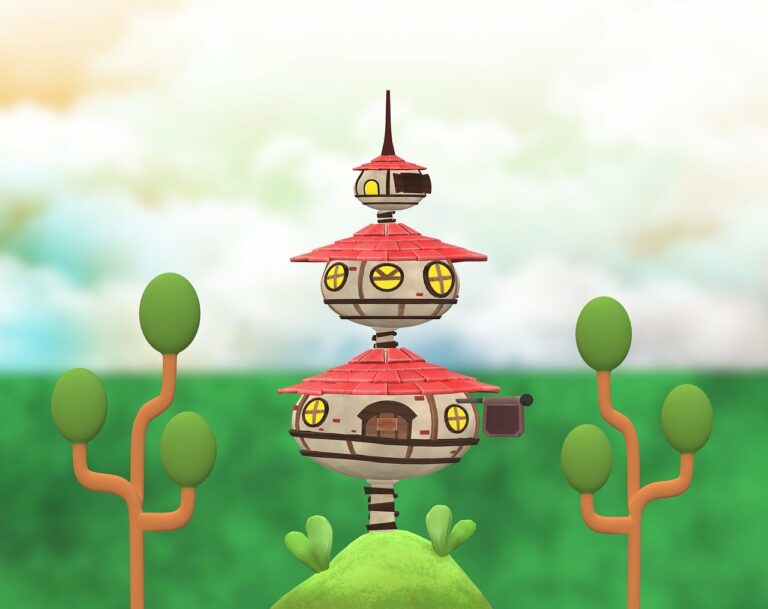Creating an Eco-Friendly Garden: Sustainable Landscaping Tips
all pannel.com, play99, golds 365: Creating an Eco-Friendly Garden: Sustainable Landscaping Tips
If you’re a nature lover and want to do your part in helping the environment, creating an eco-friendly garden is a great way to start. By practicing sustainable landscaping techniques, you can reduce your carbon footprint, conserve water, and provide a habitat for local wildlife. In this blog post, we’ll discuss some tips for creating an eco-friendly garden that not only looks beautiful but also benefits the environment.
Choose Native Plants
One of the best ways to create an eco-friendly garden is to plant native species. Native plants are well adapted to the local climate and soil conditions, which means they require less water and maintenance than exotic species. Additionally, native plants provide food and shelter for local wildlife, helping to support biodiversity in your garden. When selecting plants for your garden, be sure to choose species that are native to your region to create a sustainable and thriving ecosystem.
Minimize Water Usage
Conserving water is crucial for creating an eco-friendly garden. To minimize water usage, consider installing a rain barrel to collect rainwater for irrigation. You can also use drought-tolerant plants that require less water to thrive. Mulching your garden beds can help retain moisture in the soil and reduce evaporation. Additionally, consider using a drip irrigation system to deliver water directly to the roots of your plants, minimizing water waste.
Avoid Chemicals
Chemical pesticides and fertilizers can be harmful to the environment, as well as to beneficial insects and wildlife in your garden. Instead of using synthetic chemicals, opt for natural alternatives such as compost, mulch, and organic pest controls. You can also create a wildlife-friendly garden by attracting natural predators like ladybugs and birds to help control pests in your garden. By avoiding chemicals, you can create a healthy and sustainable garden that supports a diverse ecosystem.
Practice Composting
Composting is a great way to reduce waste and improve the health of your garden soil. By composting kitchen scraps, yard waste, and other organic materials, you can create nutrient-rich compost that can be used to fertilize your plants. Composting also helps to reduce greenhouse gas emissions by diverting organic waste from landfills. To start composting, simply set up a compost bin in your garden and add a mix of green and brown materials to create a healthy compost pile. In no time, you’ll have a rich compost that can benefit your plants and the environment.
Attract Pollinators
Pollinators such as bees, butterflies, and birds play a crucial role in pollinating flowers and plants, helping them reproduce and create seeds. By attracting pollinators to your garden, you can increase biodiversity and promote plant growth. To attract pollinators, plant a variety of nectar-rich flowers in your garden, such as lavender, sunflowers, and coneflowers. You can also create habitat for pollinators by adding a bee hotel or birdhouse to your garden. By creating a pollinator-friendly garden, you can help support local wildlife and create a beautiful and sustainable ecosystem.
Reduce Lawn Area
Traditional lawns require a lot of water, fertilizers, and maintenance to keep them green and healthy. By reducing the size of your lawn and replacing it with native plants, trees, or shrubs, you can create a more sustainable garden that requires less water and maintenance. Consider planting a meadow garden or creating a rock garden to minimize lawn area and create a more eco-friendly landscape. By reducing lawn area, you can save time and resources while creating a diverse and sustainable garden that benefits the environment.
Plant Trees
Trees are essential for creating a sustainable garden and improving the health of the environment. Trees help to absorb carbon dioxide, provide shade and shelter for wildlife, and reduce energy costs by shading your home in the summer and blocking cold winds in the winter. By planting trees in your garden, you can create a more sustainable landscape that benefits the environment and enhances the beauty of your outdoor space. Consider planting native trees that are well adapted to your region and provide food and habitat for local wildlife. By planting trees, you can create a more sustainable garden that benefits the environment and supports biodiversity.
FAQs
Q: What are some benefits of creating an eco-friendly garden?
A: Creating an eco-friendly garden can help reduce your carbon footprint, conserve water, support biodiversity, and provide habitat for local wildlife. By practicing sustainable landscaping techniques, you can create a beautiful and sustainable garden that benefits the environment and enhances the beauty of your outdoor space.
Q: How can I attract wildlife to my garden?
A: To attract wildlife to your garden, plant a variety of native plants, create habitat such as birdhouses and bee hotels, provide food and water sources, and avoid using chemical pesticides. By creating a wildlife-friendly garden, you can attract birds, butterflies, and beneficial insects that help support a diverse ecosystem.
Q: How can I reduce water usage in my garden?
A: To reduce water usage in your garden, consider installing a rain barrel, using drought-tolerant plants, mulching garden beds, using a drip irrigation system, and practicing water-saving techniques such as watering early in the morning or evening. By minimizing water usage, you can create a more eco-friendly garden that conserves water and supports a healthy ecosystem.
Q: What are some ways to avoid using chemical pesticides in my garden?
A: To avoid using chemical pesticides in your garden, opt for natural pest controls such as companion planting, beneficial insects, and organic sprays. You can also practice good garden hygiene by removing weeds and diseased plants, rotating crops, and attracting natural predators to help control pests. By avoiding chemical pesticides, you can create a healthy and sustainable garden that benefits the environment and supports biodiversity.
In conclusion, creating an eco-friendly garden is a rewarding way to contribute to environmental conservation and support local wildlife. By practicing sustainable landscaping techniques such as planting native species, conserving water, avoiding chemicals, composting, attracting pollinators, reducing lawn area, and planting trees, you can create a beautiful and sustainable garden that benefits the environment and enhances the beauty of your outdoor space. Start implementing these tips in your garden today and enjoy the many benefits of creating an eco-friendly landscape.







